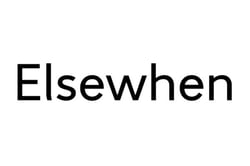/Generative%20AI%20and%20the%20Future%20of%20Employee%20Experience-min.jpg)
Generative AI and the future of employee experience
How are companies using generative AI to change the future of employee experience? Discover more about the launch of ChatGPT and the integration of AI in organisations, in this roundtable debate.
An overview: generative AI and the employee experience
It is not just your customers, partners or end users that will experience changes thanks to generative AI and LLMs (large language models): your teams will evolve too, and the best evolutions will set those businesses apart. What steps should leaders take now to prepare their workforce?
In this roundtable discussion, senior industry leaders discuss the diverse perspectives on harnessing AI for business use, securing foundations with AI safeguards and fostering a hybrid approach that balances centralised initiatives with experimentation. These leaders dove into the implications of AI on job roles and the nature of work, as well as the challenges and opportunities presented by this shift.
Generative AI: Meet the panellists
Moderated by presenter and broadcaster Lea Sellers, the roundtable participants included:
- Tim Carmichael, Chief Data Officer, Chalhoub Group
- Ian Cohen, Chief Product & Information Officer, Acaium Group
- Ari Cohen, Chief Data Officer EMEA, Macquarie Group Limited
- Leon Gauhman, Chief Product & Strategy Officer, Elsewhen
Watch the roundtable highlights for Generative AI and the Future of Employee Experience
Ready to discover more? If you liked these highlights, click the button below to watch the full roundtable debate on YouTube
Generative AI: Key takeaways
The launch of generative AI
Addressing the significance of the advent of ChatGPT and other generative AI technologies in terms of employee experience, Ari Cohen, Chief Data Officer EMEA at Macquarie Group Limited, said: “People have been talking about AI and following AI since the 50s”. In his view, we are entering a new age or time of generative AI that has been discussed for decades.
Leon Gauhman, Chief Product & Strategy Officer at Elsewhen, was in agreement with the idea that generative technologies like AI are bringing about new change. Before being brought into the spotlight, Leon explained that this technology existed behind the scenes before “OpenAI put an interface on top of it and released it”. This wave of building products and solving customer-centred user problems is something that he believes is arousing excitement among technology leaders, becoming the “next big wave”.
Echoing Leon’s point about generative AI changing our way of life, Ian Cohen highlighted the transformative power of technological advancements, particularly those that make complex systems easily accessible to the masses by turning into an simple ask-a-question interface. “That is for me the killer thing that is driving the adoption and why it's moving so quickly”.
Integrating AI into the employee experience
Further on in the debate, moderator Lea Sellers asked the panellists what practical uses they have for AI in their respective organisations, as well as how they are planning on harnessing it.
For Ari, the trend that is top of mind for him is the idea that companies are looking to set up a secure “ChatGPT environment”. However, this has caused unrest among technology leaders in large corporate organisations who have concerns over data privacy: “Italy shut down ChatGPT because… they didn’t believe it was compliant with GDPR”. When it comes to the smaller corporate organisations, Ari argued that having a secure, internal generative AI portal is just the starting point.
Pointing out that Elsewhen is one year into their experimental stage with generative technology and AI, harnessing this for business use. With this comes a mutual understanding that AI can be applied to any type of work or function. Leon explained that people who never considered using technology before, ranging from teachers to CFOs, are realising the efficiencies of AI.
Building on this, Ian argued that “the ubiquity and simplicity of [AI] is a double edged sword”. He asked the panellists to remember the “fundamental truths”, arguing that on one side you have to make a secure and safe environment for your employees to work, and on the other, he emphasised that you need to “be very clear on what you want to be as a result of these technologies, because it will fundamentally change your business”.
“There's a certain power and potential in a slightly more hybrid approach”, said Tim Carmichael, Chief Data Officer at Chalhoub Group, arguing that leaders need to get their secure foundations and “AI safeguards” in place in order to make this happen. He agreed with Ian’s point on the idea that leaders need to focus on how to enable their business outcomes.
Along with this, technology leaders should focus on creating a safe environment allowing employees to experiment at the edge. “I think this idea of having a hybrid approach, where you have very focused centralised initiatives, coupled with experimentation on the edge is quite a powerful combination.”
The AI takeover–a valid fear?
“We've been fearful of technology since the Industrial Revolution, and this journey,” said Ian in response to Lea’s question about the fear of losing jobs to AI among employees.
This fear doesn't stem solely from job loss, but from the drastic transformation in the nature of work AI portends. This shift, driven by AI, will introduce new cultural and societal challenges that need careful navigation. “It will fundamentally change the nature of work”.
Ian discussed the legal sector where entry-level roles, traditionally filled by those just starting out in their careers, can now be performed by AI. This phenomenon creates a gap between education and advanced work levels, as employees need to operate on a higher plane due to AI's takeover on lower-tier tasks.
With AI eliminating these entry-level roles, the question remains on how workers will acquire the interpersonal skills, professional experience and knowledge typically gained in the workplace. Ian acknowledged this:
“It's real, it's a challenge. And it's possibly one of the things that we don't talk enough about, because part of the employee experience was coming to work and learning and interacting with people and developing as an individual. If those tasks—if those things don't exist for you as a person. What happens?”
This roundtable was created in partnership with Elsewhen.
SUBMIT A COMMENT
RELATED ARTICLES
Join the community
To join the HotTopics Community and gain access to our exclusive content, events and networking opportunities simply fill in the form below.

